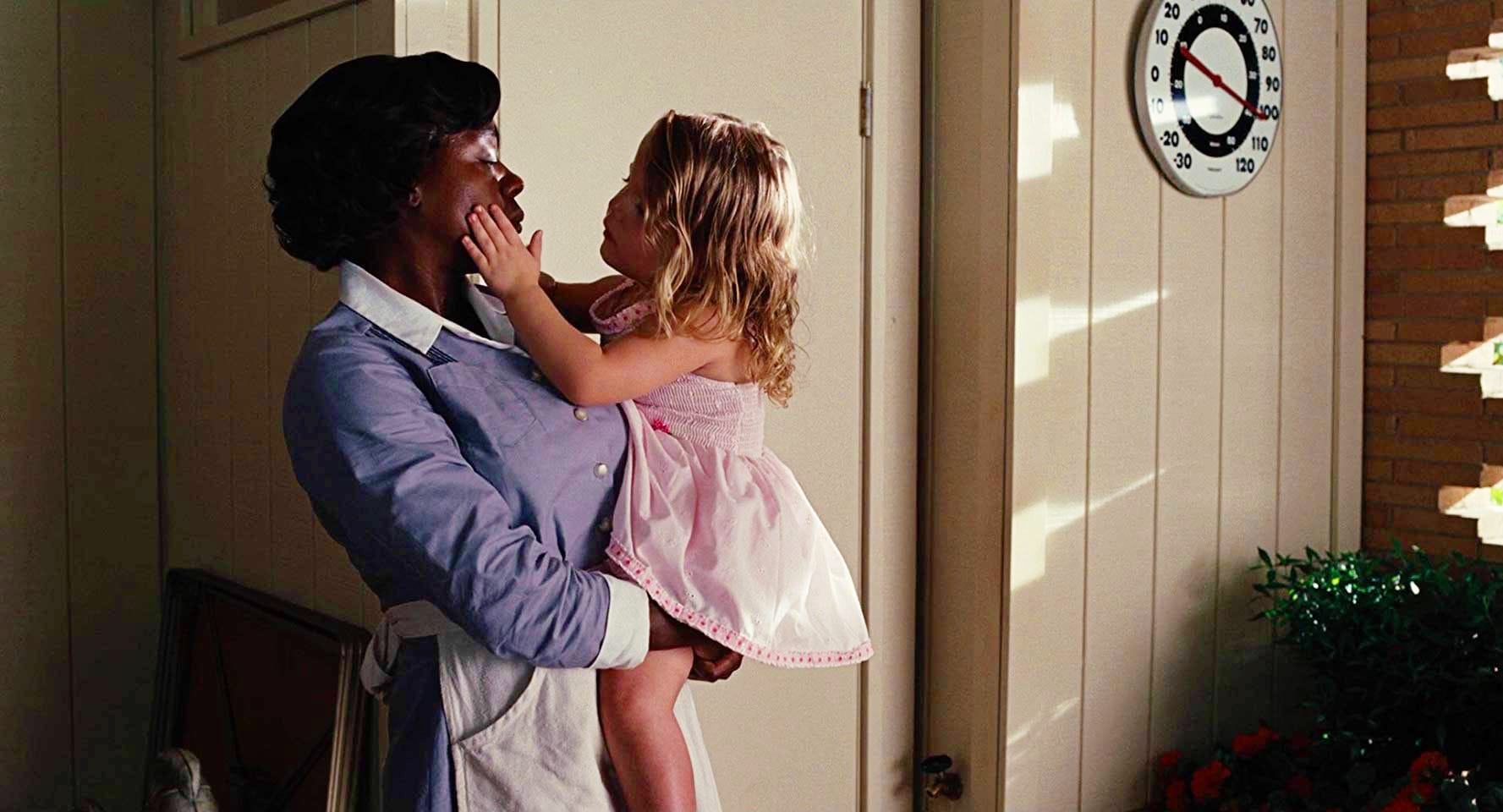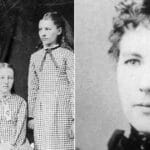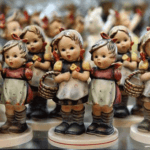Mae Mobley: Innocence in the Face of Prejudice
Little Mae Mobley, a toddler in 1960s Jackson, Mississippi, lives in a world defined by Jim Crow segregation. While her family’s home is comfortable, a chilling emotional distance separates Mae Mobley from her mother, Elizabeth. Mae Mobley’s story isn’t simply a coming-of-age tale; it’s a poignant exploration of childhood innocence caught in a web of prejudice. She becomes a symbol of hope amidst societal discrimination. Her journey in The Help illuminates racism’s impact, especially on children, and underscores the power of love and compassion. For a deeper look into a world where technology takes a dark turn, explore Ray Bradbury’s the veldt pdf.
Aibileen’s Nurturing Influence
Aibileen Clark, the Leefolts’ maid, fills the void left by Elizabeth’s emotional absence. She evolves into a surrogate mother, providing Mae Mobley with unwavering love and support. This connection profoundly impacts Mae Mobley, fostering self-worth and empathy that defy her prejudiced environment. It suggests that even in times of darkness, a child’s spirit can remain resilient and open to love. Aibileen’s daily affirmations—”You is kind, you is smart, you is important”—become a powerful counter to the negativity Mae Mobley experiences, quietly challenging the societal norms of the time. This seemingly simple act may have played a significant role in shaping Mae Mobley’s understanding of self-worth and her ability to challenge the status quo.
Elizabeth’s Emotional Struggle
The strained relationship between Mae Mobley and Elizabeth reflects the societal pressures and insecurities that burden Elizabeth. As a product of her time, she is likely trapped in a cycle of prejudice, struggling with the era’s expectations of wives and mothers. This contrast between Aibileen’s nurturing and Elizabeth’s coldness underscores the film’s exploration of race, class, distorted motherhood ideals, and prejudice’s damaging effects.
Mae Mobley’s Quiet Rebellion
Despite her age, Mae Mobley subtly challenges the ingrained social norms. Her love and acceptance of Aibileen represent a quiet rebellion. It demonstrates children’s potential to transcend racial barriers and embrace human connection. This might suggest an inherent understanding of equality and justice, untainted by societal biases. Mae Mobley’s actions highlight how small acts of love can challenge injustice.
Aibileen’s Enduring Legacy
Aibileen’s lessons of kindness, equality, and respect form the foundation of Mae Mobley’s developing moral compass. Some experts believe early childhood experiences significantly impact a person’s values. Aibileen’s influence extends beyond Mae Mobley, potentially inspiring future generations to question injustice. The film suggests that Aibileen’s teachings will likely blossom into Mae Mobley’s lifelong commitment to equality.
Who Played Mae Mobley in The Help?
The young girl who captivated audiences as Mae Mobley was not one but two: twin sisters Emma and Ella Henry from Madison, Mississippi. They shared the role of Mae Mobley Leefolt, a pivotal character in the 1960s racially charged South. The Henry twins, just three years old during filming, charmed viewers with their natural connection with Viola Davis, who played Aibileen.
The Iconic Line
Perhaps the most memorable scene is Aibileen telling Mae Mobley, “You is smart. You is kind. You is important.” Delivered by Ella Henry, this simple yet profound statement became iconic, encapsulating a child’s yearning for love and acceptance in a divided world. This scene likely resonated deeply with viewers and arguably cemented the film’s place in cinematic history.
The Power of the Twins’ Portrayal
Casting the Henry twins proved ingenious. Their portrayal of childhood innocence and vulnerability within a segregated society added depth and emotional resonance, highlighting prejudice’s impact on even the youngest. This suggests that children like Mae Mobley were not immune to the pervasive racism. Simultaneously, their portrayal offered hope, demonstrating the human spirit’s resilience. This blend of vulnerability and resilience likely contributed to the film’s emotional power. The twins’ performance offered a poignant lens through which to view the complexities of race relations during the Civil Rights Movement, likely helping viewers connect with the characters’ struggles and prompting discussions about this crucial period.
The Unbreakable Bond Between Mae Mobley and Aibileen
Mae Mobley and Aibileen’s relationship transcends a simple employer-employee dynamic; it forms the heart of The Help. With Mae Mobley’s mother often neglecting her, Aibileen steps in, offering the love, attention, and support every child deserves. This connection reveals the complexities of human relationships, suggesting that love can thrive even in adversity. Some scholars believe their bond illustrates how individual kindness can create positive change. While their bond takes center stage, the story also highlights Aibileen’s strength and resilience, leaving audiences to admire her capacity to love and nurture despite facing daily discrimination.
Aibileen’s Wisdom and Guidance
Aibileen, facing daily indignities, consistently chooses kindness and compassion. This probably helped Mae Mobley develop a unique perspective compared to other white children. Aibileen’s wisdom and guidance, likely planting the seeds for Mae Mobley’s later understanding of social injustice, instill a deep sense of empathy.
Challenging Societal Norms
There is debate about the feasibility of such strong relationships within the era’s racial divides. However, the story’s power lies in its exploration of hope and possibility. It demonstrates how seemingly small acts of love and acceptance can have a profound impact, suggesting that positive early influences can shape a child’s worldview. It is worth considering that the story may offer a somewhat idealized portrayal of race relations. While some critics argue it simplifies a complex reality, the widespread appeal of Mae Mobley and Aibileen’s relationship might suggest a desire for stories about interracial love and reconciliation.
Aibileen’s Words of Wisdom: Shaping a Young Mind
Mae Mobley and Aibileen’s relationship revolves around Aibileen’s role as a source of comfort, wisdom, and powerful influence. Aibileen, seeing Mae Mobley’s neglect, provides unwavering love and support, acting as a nurturing force that helps her grow. This constant reassurance creates a safe haven, crucial given the negative messages Mae Mobley receives elsewhere.
The Power of “You Is Kind, You Is Smart, You Is Important”
This recurring phrase isn’t simply feel-good rhetoric; it’s a deliberate act against prejudice. It becomes a mantra, reinforcing Mae Mobley’s worth and her right to love and respect. Aibileen’s influence extends beyond affirmations. Letting Mae Mobley use the “colored” bathroom becomes a powerful act of defiance, exposing segregation’s absurdity and Elizabeth’s deeply rooted racism.
Weaving Lessons into Everyday Life
Aibileen weaves lessons of equality into everyday moments, using stories and games to teach Mae Mobley about shared humanity. These subtle interactions plant seeds of empathy and compassion. The “You is kind…” mantra becomes Mae Mobley’s compass, guiding her understanding of race and identity and empowering her to question prejudiced norms. Mae Mobley’s compassionate interactions with her brother, Ross, suggest Aibileen’s influence will likely shape her lifelong values. While we cannot predict Mae Mobley’s future with certainty, research suggests early lessons of empathy can have a lasting impact, potentially fostering greater tolerance in future generations. It’s important to remember that we see only a snapshot of Mae Mobley’s childhood. Numerous factors contribute to her development, and Aibileen’s influence is open to interpretation. However, their bond clearly shapes Mae Mobley’s understanding of the world.
- Unlock Elemental 2 Secrets: Actionable Insights Now - April 2, 2025
- Lot’s Wife’s Name: Unveiling the Mystery of Sodom’s Fall - April 2, 2025
- Photocell Sensors: A Complete Guide for Selection and Implementation - April 2, 2025

















1 thought on “Mae Mobley’s Journey in The Help: A Child’s Eye on Racism and Love”
Comments are closed.